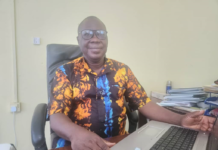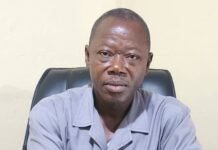The US Department of State’s 2019 Country Report on Human Rights Practices makes a very good read in the area of Sierra Leone’s efforts to combat corruption.
As well as highlighting general human rights issues in the country, the Report also cataloged the massive gains made by the country, under the leadership of President Julius Maada Bio, to combat graft and ensure probity in the use of state resources. Since the President appointed the young and dynamic Francis Ben Kaifala Esq at the helm of the fight against corruption two years ago, the country has made consistent leaps in international indices like those of Transparency International, Millennium Challenge Corporation, Afro Barometer and the recently released Department of State Report. This is what the Human Rights Report says about the area of corruption control in the country, Section 4. Corruption and Lack of Transparency in Government
The law provides criminal penalties for corruption by officials, and the government generally implemented the law effectively. Officials sometimes engaged in corrupt practices with impunity. During the year there were fewer reports of government corruption compared with 2018.
Corruption: The Anticorruption Commission (ACC) indicted and charged more than 33 persons, convicted 16 individuals, and recovered more than 17.8 billion Leones ($1.97 million) from corrupt government officials. For example, in September the ACC indicted the former executive director of the Sierra Leone Roads Safety Authority and two other officials for defrauding the state of 2.1 billion Leones ($233,000).
During the year a survey by Transparency International found that 52 percent of the residents of the country had paid a bribe for public services, with the highest rate of bribery for health services. In Transparency International’s previous 2015 survey, 41 percent reported paying bribes.
In May the judiciary assigned five high court justices to a new Anti-Corruption Court to deal with corruption cases brought by the ACC. During the year these judges presided over anticorruption cases but did not sit as a separate court. In October parliament passed into law the Anti-Corruption Amendment Act of 2019, which increased penalties for corruption and provided the ACC with alternative powers to prosecution, including out-of-court settlements to recoup stolen monies.
As in previous years, human rights groups expressed concern that police corruption remained a serious problem. Some police and guards exacted bribes at checkpoints, falsely charged motorists with violations, impounded vehicles to extort money, and accepted bribes from suspects to drop charges or to arrest their rivals and charge them with crimes. In exchange for kickbacks, police reportedly arrested persons for civil disputes, such as alleged breach of contract or failure to satisfy a debt.
Financial Disclosure: The law requires public officers, their spouses, and their children to declare their assets and liabilities within three months of assuming office, and according to the ACC, officials largely complied. The Amended Anti- Corruption Act further requires public officials to declare their assets no later than three months after the end of their employment.
The law also mandates the disclosure of assets by government ministers and members of parliament. The ACC is empowered to verify asset disclosures and may publish in media the names of those who refuse to disclose and petition courts to compel disclosure. The particulars of individual declarations were not available to the public without a court order.

























